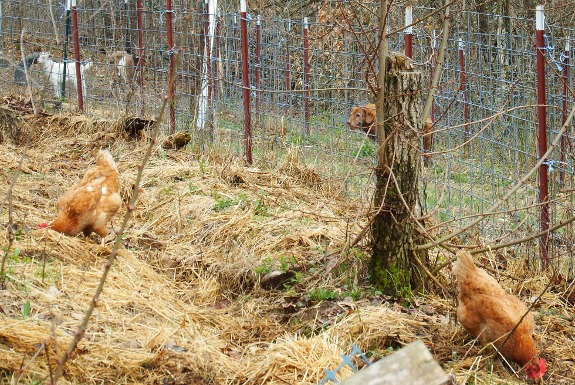We’ve been writing a lot more about ducks than chickens for the last month or so, which isn’t because we love our chickens less. In fact, our land fowl are much more malleable, while our waterfowl seem to require much more supervision to make sure they come home for the night and lay eggs. On the other hand, ducks are quite interesting.
![Duck swamp]()
When half of our farm went underwater during the floods early this month, our ducks flew the coop…or rather, they swam away and refused to come home at night. We’d hear them quacking at intervals down the huge lake that had taken over our lowland areas, but even as the floodwaters receded, the ducks refused to even return to the coop for a snack. I thought they’d run away for good when Mark came home from checking on the chickens one day and excitedly told me that the ducks were back! He fed them a much-relished meal, shut them in for the night…and waited in vain for eggs.
At first, I thought our ducks had found somewhere else to lay during their two-week excursion and that they were rushing out of the coop in the morning to return to that hidden nest site. But over the course of a week, one duck, two ducks, three ducks, and finally all four ducks began to lay at home once again. My final conclusion was that the ducks were able to consume enough wild food to keep them alive, but not enough to make eggs, and that the laying pellets we offered when they came home slowly worked through the waterfowls’ system and resulted in eggs in short order.
Why is our experience relevant for the 99.99% of you who aren’t likely to lose your ducks to floods? I think we all like to dream of letting our livestock free range for all their food, but the reality for most of us is that production will be low to none if we don’t provide supplemental feed for our flocks. Perhaps if our ducks had run away while the world was at its most green, they might have been able to lay on wild food alone. But I suspect that if we want duck eggs, even if we had a pond, we’d need to pony up the cash for some extra grain and soybeans to supplement their wild diet. I guess there really is no free lunch…even if you’re a duck and have acres of water to choose from.

